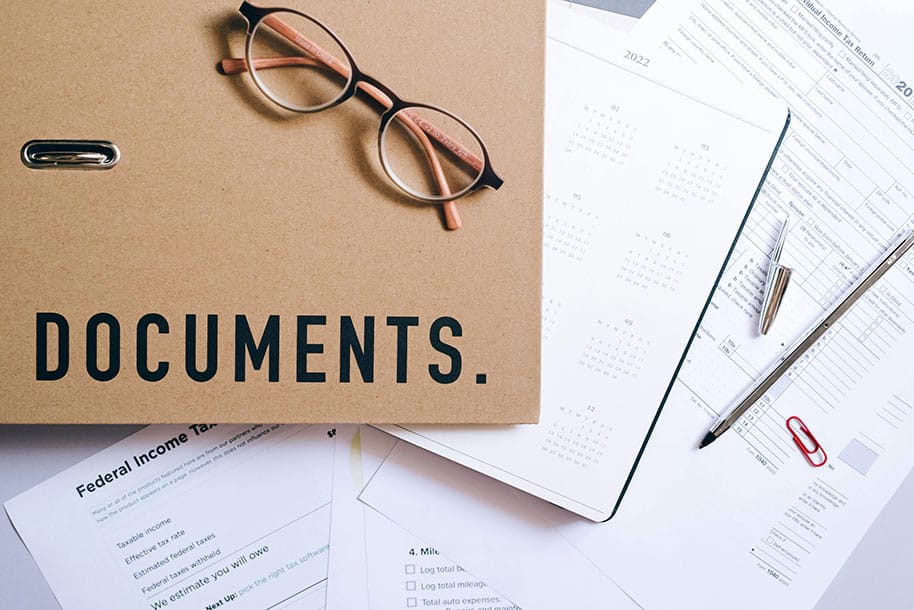 Canada’s Tax Act gives sweeping powers to the Canada Revenue Agency and by extension its tax collection officers, to collect the tax debts of taxpayers. In many cases, taxpayers are taken by surprise when their bank accounts are frozen, assets liened or seized and wages garnisheed. When a taxpayer is assessed or reassessed in the normal course of a tax audit, a tax debt to the Canadian tax department is legally created if there are taxes owing as a result. However, despite the fact that a tax debt has been created, there are internal limitations created by the Tax Act that prevent the CRA from taking action to collect immediately. According to section 225.1 of the Income Tax Act the CRA can only begin collection after 90 days of the sending of notice of assessment or notice of reassessment to the taxpayer.
Canada’s Tax Act gives sweeping powers to the Canada Revenue Agency and by extension its tax collection officers, to collect the tax debts of taxpayers. In many cases, taxpayers are taken by surprise when their bank accounts are frozen, assets liened or seized and wages garnisheed. When a taxpayer is assessed or reassessed in the normal course of a tax audit, a tax debt to the Canadian tax department is legally created if there are taxes owing as a result. However, despite the fact that a tax debt has been created, there are internal limitations created by the Tax Act that prevent the CRA from taking action to collect immediately. According to section 225.1 of the Income Tax Act the CRA can only begin collection after 90 days of the sending of notice of assessment or notice of reassessment to the taxpayer.
Subsection 222(3) and 222(5) of income tax act
The prescribed limitation period in the Income Tax Act is 10 years; this means that after 10 years, the Canada Revenue Agency is legally prevented from collecting on a tax debt. The Income Tax Act at subsection 222(3) provides that the CRA may not commence or continue an action to collect a tax debt after the end of the limitation period for the collection of the debt. the Tax Act also specifically allows for the Minister to extend the limitation period by virtue of subsection 222(5); the limitation period of 10 years is “reset” if the tax department carries out any action to collect the tax debt, such as sending out a demand to pay letter. Essentially, every time that the tax collectors continue with collections action, the 10 year limitation period ‘restarts’. If there is no collection action for a period of 10 years plus one day, no taxpayer (or taxpayer’s legal representative) acknowledging the debt in the past 10 years, and no derivative assessment is issued against a third-party, the CRA will be statute barred by the 10 year limitation period to continue or restart collection action. In all of this the only thing that a tax debtor can do to avoid prolonging the period of collection as much as possible is to avoid acknowledging or paying the debt.
Seek a professional tax advice before speaking to a Tax Collections Officer
The taxpayer can acknowledge the debt in one of three ways as mentioned in subsection 222(6) of the Income Tax Act. Any of these three actions by the taxpayer will result in a “reset” of the limitations period, and the taxpayer will be back to square one. Thus Canadians with tax debt would be well served to seek professional tax advice from one of our Canadian tax lawyers before communicating directly with Tax Collections Officers. If you owe a debt to the Canada Revenue Agency and you are unsure whether the limitation period has passed, get in touch with our expert Canadian Income Tax Lawyers. Our tax professionals can give you the counsel and representation that you need to be successful in your dispute, negotiation and settlement with the Canada Revenue Agency at each stage of the process, and help to ensure that you are not paying the CRA more than it is legally entitled to.
FAQ
How long can I keep tax records in Canada?
It is advisable to keep your tax records for up to 6 years. These records should include your tax returns and supporting documents like T-slips, receipts of medical, child care, charitable contributions, moving expenses, and other expenses that are credited or deducted. Electronic records will do.
How can I request a permission to destroy my records before the end of their retention period?
Destroying your books or tax records earlier than the time of retention without the permission of the Canada Revenue Agency can lead to legal problems. To get the consent of the CRA, you need to complete the Request for Destruction of Records or Form T137 and apply through writing to your tax service office. Your authorized representative can also make the application. The CRA can only allow you to destroy records under its mandate and not the documents you must keep under federal, provincial, territorial or municipal laws.
Where can I keep my records?
You should keep your records in your residence or place of business in Canada. Written permission from the Canada Revenue Agency is necessary if you wish to keep your documents outside the country. To obtain the clearance from CRA, you need to write to your tax service office. It will indicate all the specific terms and conditions of keeping them outside Canada. However, all these documents must be readily available whenever there is a request for review. This option does not apply to some personalities and institutions.


